Last Updated on June 20, 2024 by Michelle
In my opinion, there is one thing every gardener should do.
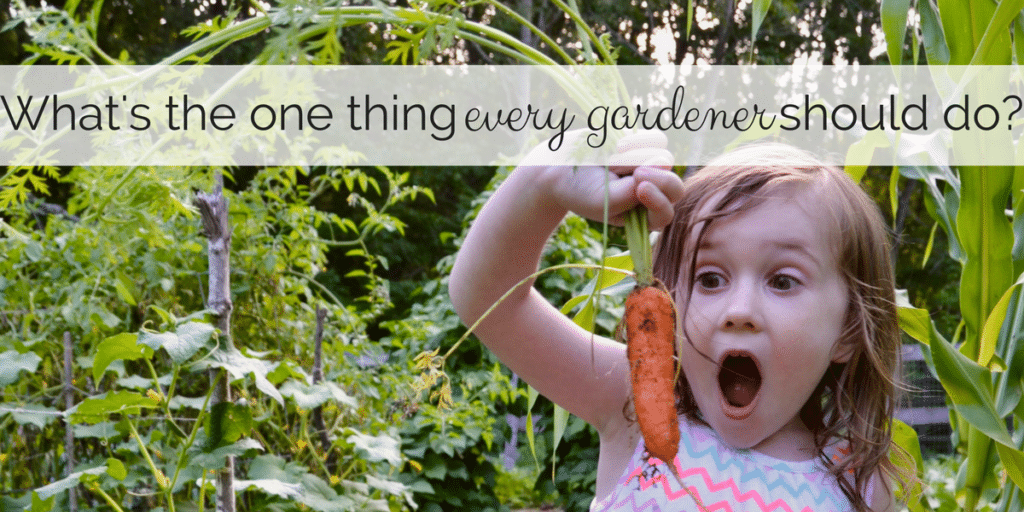
Disclosure: this post contains affiliate links.
Be sure to scroll all the way to the bottom of today’s post for easy-peasy ways to enter for a chance to win 10 Baker Creek Heirloom Seed Packets… whatever 10 YOU choose… seriously… Don’t miss this!
Because I LOVE Baker Creek seeds.
So, that opinion I was about to voice about the one thing every gardener should do? Compost.
Yep, save food scraps and dead plants. . . Play with food scraps and dead plants. . . And then play with them again and spread them all around. That’s the one thing every gardener should do. Why? In my own experiences over the years, I’ve found that composting is the most important thing I do as a gardener.
I’m gonna break down lots of details of why and how in upcoming posts.
Today, I’m gonna start with some reasons you may NOT want to compost (yes, a little tongue in cheek) and what some illustrious folks have thought of composting throughout history–from the Bard, to an architect, to an explorer. In future posts, we’ll dig into lots more composting details. Yes, I’ll admit it, the hokey pun was intentional, but cut me a little slack, because I’m really excited about this new series!
I’m potting some beautiful plants.
One thing I can do to usher in spring a little sooner–or at least plant some beauty indoors–is plant some of my favorite potted beauties. I wrote about the 6 reasons why THESE plants are my favorite plants ever here. (But #3 is my hands-down favorite.)
Photo credit: Mountain Crest Gardens.
Spring IS coming. It IS.
Meanwhile… around the homestead…
I always know that spring is surely around the corner when Mr. Big Fat–my beloved rooster who is named for his attitude, not his size–develops new, spring-time interest in having “special moments” with his hens. If you’ve never witnessed a rooster woo a hen, you’ve missed out on a funny little roo dance (complete with a ruffled-feather neck), a quick nibble at the neck, and a walk-on-her-back rumba that is over before it starts. She closes her eyes, and then it’s over. While the roo shakes his feathers and puffs up post-conquest proud, his hen is back at pecking for a bug in the dirt like the little quickie never even happened.
So, yeah, our busy chicken, and the new eggs they’re finally giving us after their winter egg strike, assure us winter is nearing an end. Our seedlings sprouting in our sunny window ledges remind us as well.
If you too have a rooster, please glance at this popular post about the huge mistake I made with my rooster so your young hens will be safe.
And if you’re ready to start your spring seedlings, glance at these 6 ingenious seedling planters we’ve used over the years, and find out which ones I like and which ones I’m not so crazy about.
But this week, and for many to come, we’re in the in-between season of New England.
We’re sandwiched between the elegant frosty beauty of winter and the wet, mud-covered days of spring. These days are a median of sorts. Not hovering between snow and mud, but offering a crazy combination of the two. Some days, as much as we love the promise of spring that lingers over the farm, we’re thankful for the shot of winter and dusting of snow carried in by the next sunrise, because the colder temps refreeze all the pits of mud we’ve been chartering through.
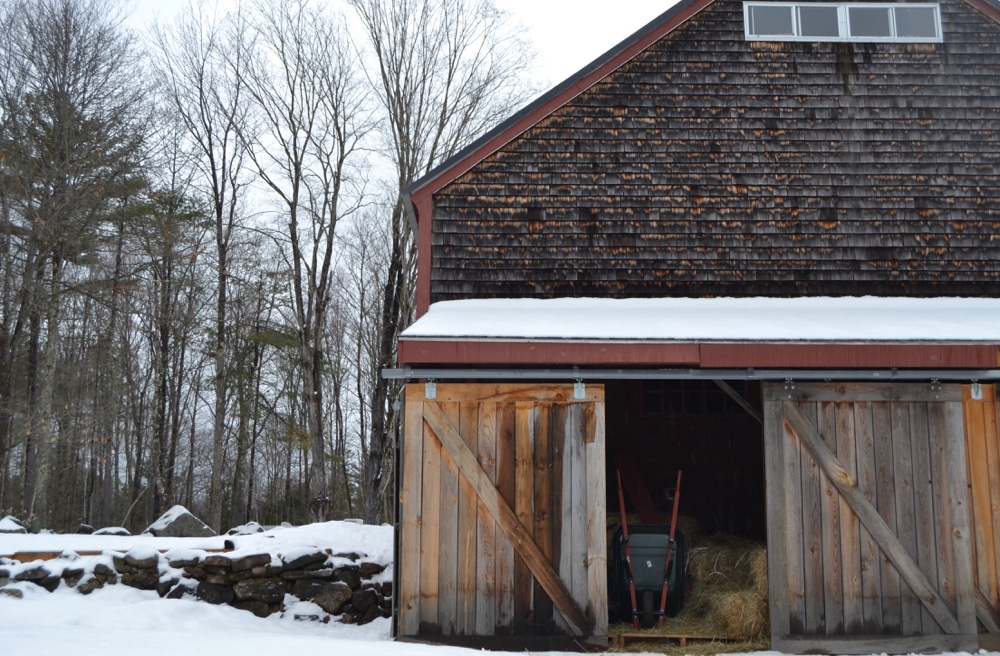
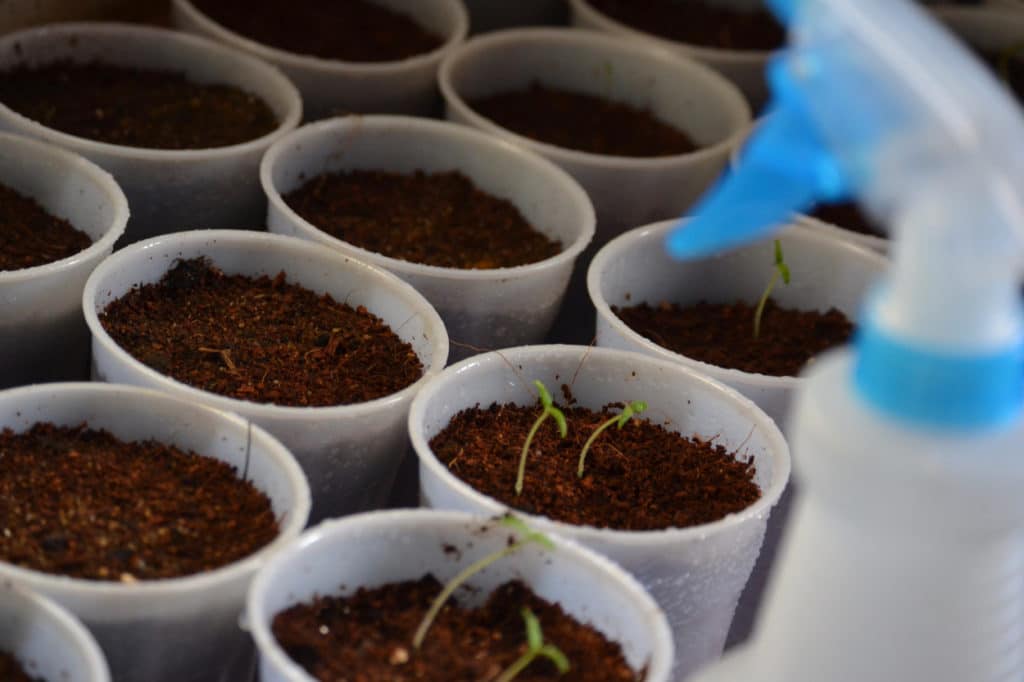
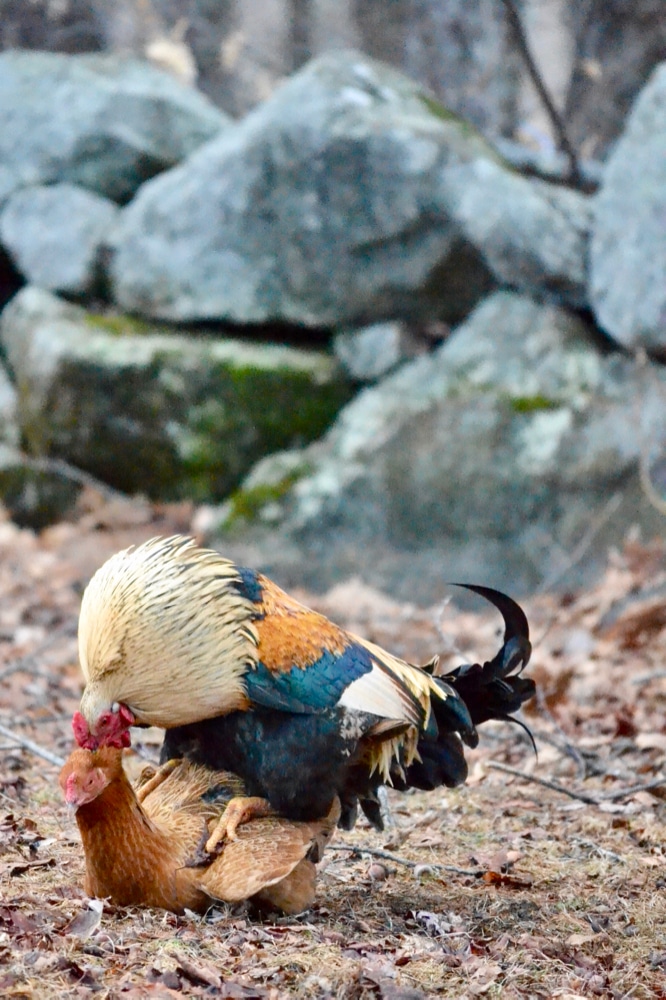
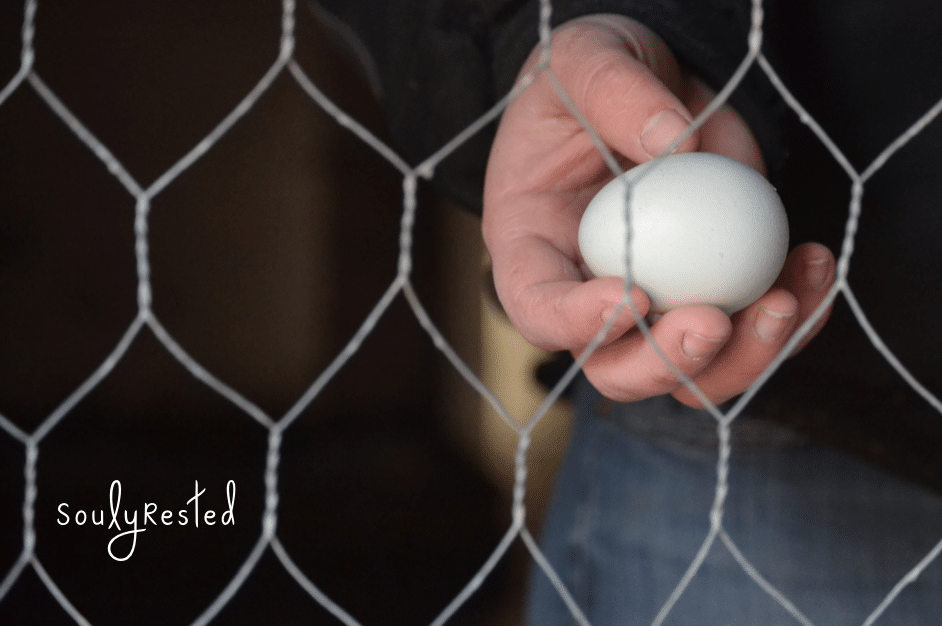
The sap is doing its dance.
And, of course, maple sap holds its own special celebration during this “sandwich season” in New England… you know, the season “sandwiched” between winter and spring? It’s our fifth season, so to speak. We have the four typical seasons: spring, summer, fall, and winter. And then there’s our fifth season: sap season.
The sap freezes and lies dormant every night but dances with the promise of spring if temperatures rise above 40 as each morning gives way to a new afternoon.
My youtubing teen made this alluring video to commemorate our new season. What I tend to express with the written word, she tends to express visually. And I happen to think she does so quite brilliantly, no?–>
We had been enjoying a great run of sap last week. We’ve added taps this year. Now we’re up to 110 taps and have boiled 5 batches of sap to equal 27 pints of syrup so far. But as I sat down to write this, temps have dipped and it looks like we’ll have a few quiet sap days ahead.
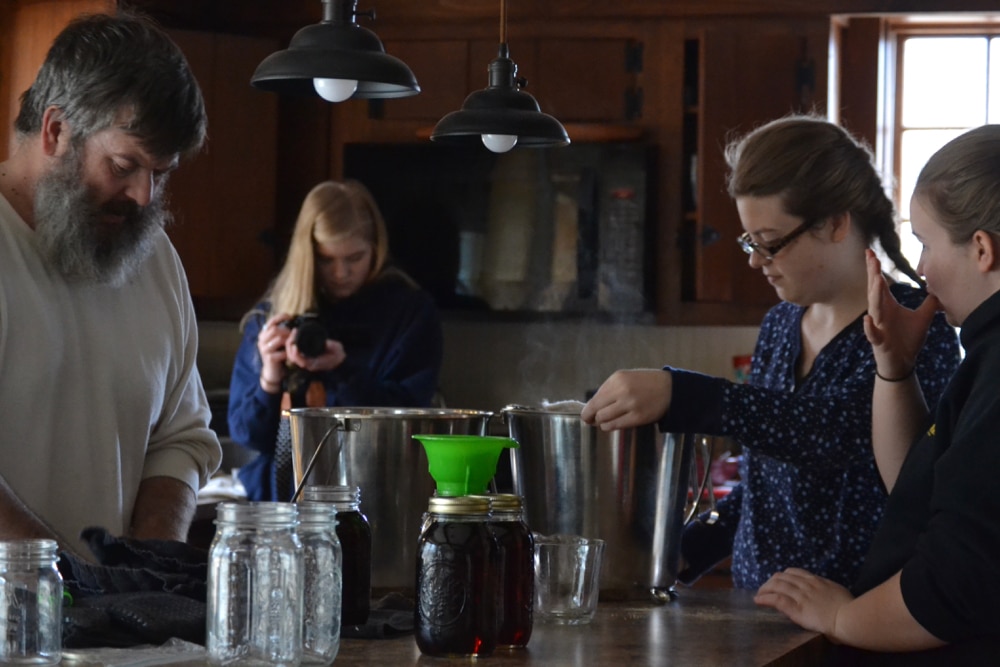

So, when I’m bored in early March, my thoughts turn to summer. Gardening. Dirt. And glorious fresh vegetables.
Thus, it’s the perfect time to start a compost series here on the blog. During our “sandwich season” of sap and syrup, snow and mud, why not start dreaming of the best sandwich ever… a fresh-picked, warmed-by-the-sun, giant-tomato sandwich?
I’ve learned over the years that composting is imperative for me if I want to grow perfect tomatoes. I truly think composting is the one thing every gardener should do. But I thought I’d let you know, right off the bat, 5 reasons you might NOT want to compost.
You might not want to compost if…
1.You might not want to compost if you don’t like the old ways of doing things.
Personally, I think there’s a lot of good in the good old days.
Even though the tradition of improving the soil by adding “black gold—named for its dark color—is growing in popularity” according to this article in National Geographic, I gotta wonder why so many gardeners still don’t compost. And I wonder if some of the hesitation is simply because it is the “old fashioned” thing to do.
It is true. Composting does have a long history. One as old as dirt, really. Just consider what these illustrious folks thought of composting throughout history:
Of course Shakespeare knew that composted matter made everything grow. Remember when Hamlet told his mom (you know, sweet Gertrude, who knew her new husband killed her old one?) “Don’t spread the compost over the weeds in your heart; it’ll only make them ranker.”
Henry Morton Stanley, the brave explorer who went searching in the heart of Africa for David Livingstone, knew about compost back in the 1800s. He was also pretty wise about the condition of the human heart… “Religion acts as a moral gardener, to weed out, or suppress, evil tendencies, which, like weeds and nettles, would shoot up spontaneously in the wonderful compost of the garden, if unwatched.”
And Henry David Thoreau knew that all of us indeed WILL know about compost, in one way or another… “But men labor under a mistake. The better part of the man is soon plowed into the soil for compost. By a seeming fate, commonly called necessity, they are employed, as it says in an old book, laying up treasures which moth and rust will corrupt and thieves break through and steal. It is a fool’s life, as they will find when they get to the end of it, if not before.”
Then William Kent, an amazing landscape architect in the 1600s, knew that future generations would reap the benefits of composting and organic gardening when he said “Garden as though you will live forever.” Indeed, when we see how Big Agriculture is essentially destroying our soil, depleting it of its nutrients, the future of food is in the hands of small gardeners, working small family gardens, and rejuvenating our land in large ways.
So when did composting become old fashioned? In the mid 1800s, scientists started noticing that plants gained nutrients from chemicals, and before you know it a bag of fertilizer seemed much more effective than the old-time ways. Not until the mid 1900s did anyone pay much attention to the idea of composting, well, except for all those rural farmers like my granddad who never knew how (or had the means) to farm any other way.
In 1943, Sir Albert Howard, a British agronomist, published a book that spelled out the benefits of organic gardening with plant matter and manure and the old ways got some new attention.
Of course my examples don’t begin to give true insight into the full history of composting. This article and this one do a pretty good job at that.
Somehow archaeologists mentioned in the National Geographic article I linked to above have figured out that farmers on the British Isles were composting many thousands of years ago. But I didn’t need an archaeologist to tell me this. Of course farmers were adding organic matter to the ground to feed their crops. It only makes sense… but that is skipping ahead to #3. First, there’s this point…
2. You might not want to compost if you don’t have a garden.
But if you think you need to have a large garden to justify composting, well, you’d be wrong.
If you think your garden is small and you figure composting would be more headache than it’s worth, you’d be wrong again.
If you don’t think you have space where you can compost, think again. (We’ll talk about that in a future post.)
In fact, even if you don’t have a vegetable garden, or if you live on a tiny plot of land, you need to keep reading. Turns out there are lots of uses for compost, even if you have a small yard, or none at all, and even if you have no garden to tend.
If your garden just consists of potted veggies on your back porch, there’s no better reason to compost, in my opinion. I struggle with getting vegetables to grow vibrantly in small areas or in pots; compost makes the effort toward vibrant plants in small containers much more attainable for me. And, today many cities offer compost options. I just read the other day that New York City boasts of this fantastic composting program.
3. You might not want to compost if you’re not into common-sense good food.
But before I explain the details of how to compost, in upcoming posts in this series, I should warn you. This common sense attitude is addictive. Of course, gardening is too. If you know what I’m talking about, you’ll wanna snag a free copy of my book, Beautiful Gardening, for free, like right now… in my Resource Library. 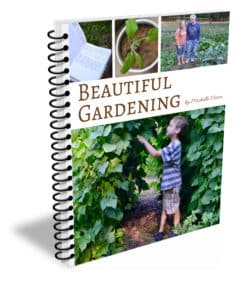
Once you start realizing that so many things you would typically throw away are actually valuable, you’re suddenly on a mission to promote as many things as you possibly can from trash to black-gold-treasure status.
Now that I’m a true fan of composting, I hate waste more than ever. Take the apple that rotted the back corner of my crisper last week. It would tear me up that I wasted a beautiful apple and had to toss it in the trash, if I didn’t have a compost bin. But knowing that that apple will be loved by my chicken as they root around in the compost bin this afternoon and then what’s left of it will be food for hundreds of microorganisms who miraculously turn it into glorious food for my tomatoes next summer, which of course will provide me with that fresh-picked, warmed-by-the-sun, giant-tomato sandwich, the thoughts of which started this whole post, well my rotten apple isn’t so rotten after all.
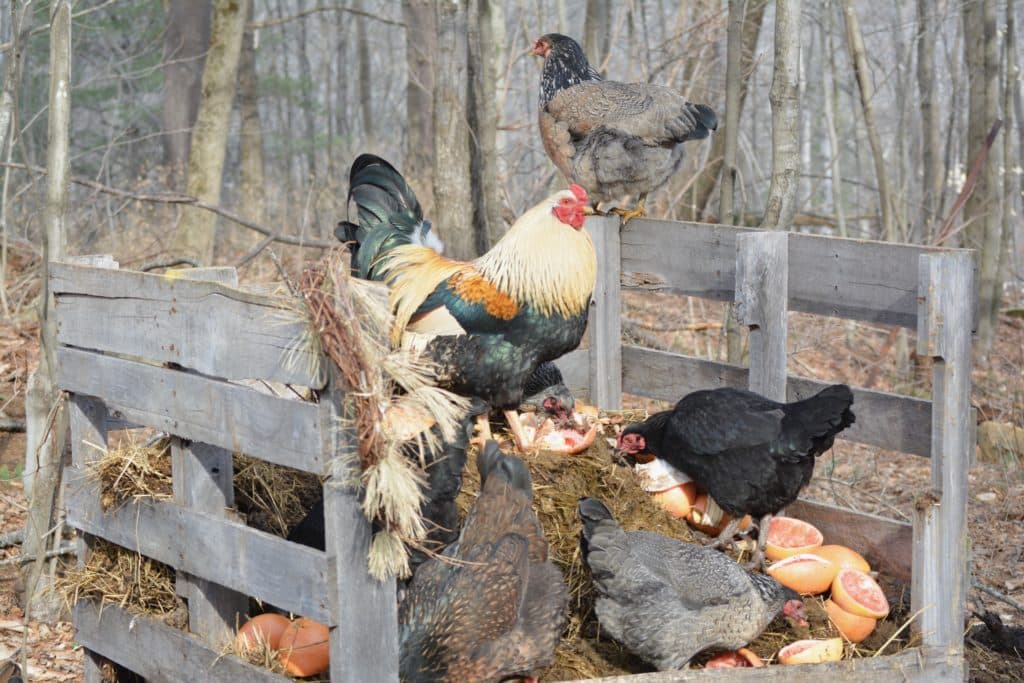
In this series, in future posts, I’ll be going over composting options, how to choose a good location for your compost, what to make sure you always compost, what you want to never include in your compost pile, how to make a compost tea, and how to use your compost.
If you agree with George Washington, “For the United States to succeed, we need to become better farmers,” you wanna follow along.
4. You might not want to compost if you’re not big on obsessions.
I mean really, for me, once I nailed down a system and had the joy of covering our garden in a luscious black carpet where our plants could prosper, I’m a compost addict. I can’t go back!
Even in the winter, when there’s an extra dose of difficulty to feed my composting addiction, I keep at it. Because we choose to keep our compost bin behind the chicken coop (I’ll explain why in a future post), it’s a treacherous, icy, downhill walk to get to our compost bin and dump our day’s worth of compostable material. But it’s worth the effort.
Of course, nothing’s easy when it comes to homesteading.
And cold winter days are the #1 reason on my list of why I might someday give up this crazy thing we call “homesteading.”
5. You might not want to compost if you can’t figure out a way to occasionally shoulder guilt.
I’ve been known to obsess over if I can get my used tea bags and banana rinds home.
When I’m out of state.
For days.
But I do sometimes drive myself crazy if, for whatever reason, I have to throw away something that I could be composting instead.
So why not give it a try?
In the end, no matter what reasons you may come up with for NOT composting, seriously, you need to give it a try. You (and your veggies) will be glad you did.
Take a peak at my garden and farm; you’ll see we have lots of manure for rich compost and a sweet little garden as a result.–>
More About Composting
What every gardener needs to know about coffee grounds.
What every gardener needs to know about egg shells.
Links to great composting supplies.
And check out the virtual seed rack at my favorite online source for amazing seeds right here.
And now for that giveaway!–>
Baker Creek Heirloom Seeds is giving one lucky reader his or her choice of 10 seed packets!
(Here are the “fine print” details, if you’re into reading such things: The giveaway begins Monday, March 5, 2018, at 5:00 am Central Time, and ends on Sunday, March 11, 2018, at 11:00 PM Central Time, and is open to US residents age 18 and over. Giveaway Tools will choose a random winner. We will notify the winner who will have 72 hours to respond. If the winner fails to respond a new winner will be chosen. The prize will be shipped directly to the winner by Baker Creek Heirloom Seeds.)
Enter using the form below. Be sure to follow the directions by clicking on each individual link for each entry BEFORE typing your name or email in each box. Simply filling in your email in each entry box does NOT subscribe or follow each blog. To qualify as an entry, you would need to follow links and follow the directions. But don’t worry, each entry is easy-peasy.
Oak Hill Homestead – How to Start a Container Garden
Spring Lake Homestead – Garden Planning
Bloom Where You’re Planted – My Favorite Seed Company Is Giving Away Seeds!
The Farmer’s Lamp – DIY a Free Pallet Garden in 4 Easy Steps
Lumnah Acres – Starting Our Seeds
Mid-Life Blogger – Swiss Chard: Stained Glass in the Garden
Be sure to pin this post!
Just click on the image below to pin this post.
Then you can reference all 7 great gardening posts in one place, all spring and summer long.–>
The earth is the Lord’s, and everything in it, the world, and all who live in it.
Psalm 24:1
DISCLOSURE: This post contains affiliate links.
Many readers often ask what camera I use to take the images you find here on SoulyRested. I love my Nikon; you can read more about my camera on my Resources page and even purchase your own here.
Glance at my Resource Page if you’d like to get a glimpse of all the supplies I use and recommend for everything from gardening, to homeschooling, to chicken care, to nature journaling, to maple syrup making.
I’d love to connect!
To find me in some other neck of the woods, just click any (or every!) icon below:
And please follow along!
Please take a second to follow along here on SoulyRested to catch up on a few of my memorable mishaps, discover fascinating things about my centuries-old farmhouse, glean a little parenting/homeschooling insight from this momma who’s been failing at the effort for almost 2 decades, or enjoy the inside scoop on the secrets other legit homesteaders might not tell you.
And have you tried my a-MAAHZ-ing Maple Sugar Cookie recipe that’s in my Resource Library? You won’t find this deliciousness anywhere else… until Sweet Maple is in print, October 1st.
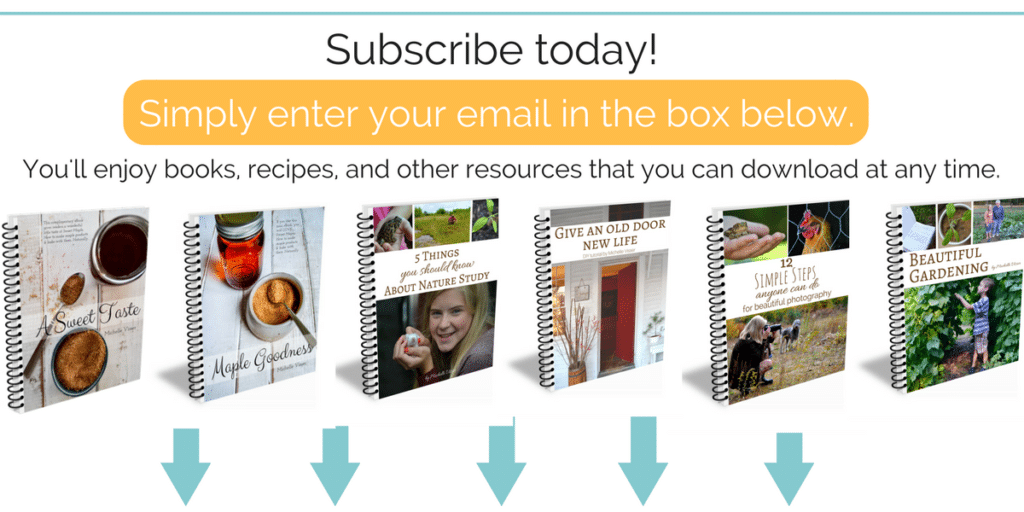
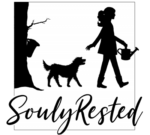
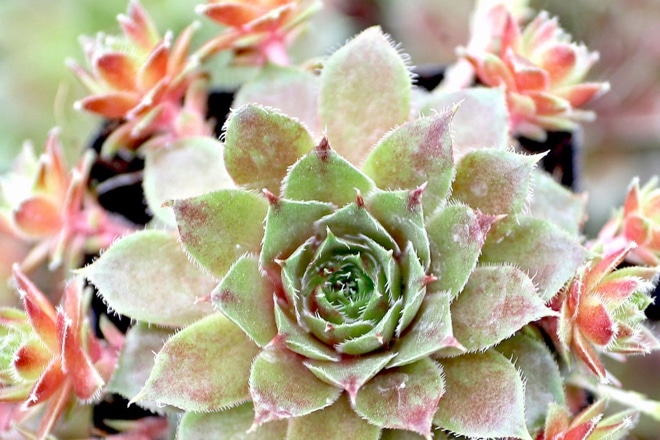


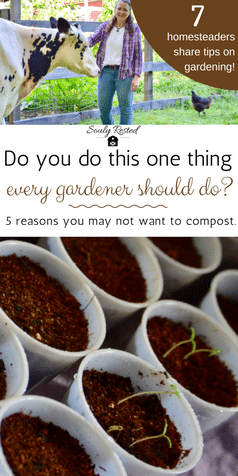




Wow! Really good post on composting. I guess that makes this a compost, right? Ha! I love composting, too, and when away from home, I can’t help but notice all the good stuff that gets thrown away instead of composted. I have a similar system as you. My compost pile is in the chicken yard. They eat most of what is put in there, and turn the pile while adding their own fertilizer to it. It’s a great system! Then I add it to my raised beds. Sometimes I even dig a hole in my raised bed and bury some right there, too. I look forward to the rest of your series!
YES! The chicken are a huge asset to our composting system! Glad I’m not the only one who has discovered this! (And yes, this is indeed a compost. 🙂 )
I had to laugh about your compost “obsession” – I honestly DID this – I stopped at a Starbucks in Kansas and got a big trash bag full of coffee grounds, put it in the trunk of my daughter-in-law’s car and we drove home to Oklahoma! I’m not obsessed. No, not at all. LOL!
I’m looking forward to the rest of the posts in your series.
Oh my gosh, Kathi, you and I would be truly dangerous composters together! I love your story!! Thank you for making me feel a little less “crazy” or at least “crazy with company.” 🙂
Love the whole chicken-compost idea! We cannot garden where we live now, but one day, I’ll be revisiting this post and be all set for composting success!
If I lived on a larger lot of land I think I would start composting. However, I cannot see it working where I am here.
I totally understand where you’re coming from. Before moving to our 14-acre homestead, we living on .2 acres. Yes, 2/10s of an acre. And I too thought composting was impossible so I never even tried. But there are other ways of doing it, and it can definitely be done on tiny plots of land. I’ll mention other options in the upcoming composting series. I hope one intrigues you and works for you because composting has become one of my biggest gardening joys, for sure.
Thanks for all the great advice and encouragement. Do you have an easy recipe for compost tea? I have put compost from my pile in water and let it sit, but was wondering if there is an easier way to make it.
Thanks for your help.
There is indeed Rebecca!! I was actually going to show everyone on facebook this week how I make mine. It’s super easy and the plants LOVE it. I soak a few banana peels in a mason jar full of water for a few days. That’s it… Easy Peasy. Let me know if you try it!
I have a few banana peels from some I froze for smoothies. I will put them in the water now. Thanks.
You may wanna use a rock or something on top of the peels to keep them under the water. Then in 2 days, voila–wonderful plant food! Bananas are full of potassium, and rich in phosphorus, both of which are key ingredients in good, rich soil. I have a free ebook all about composting that I hope to add to my subscriber resource library one day soon; watch for it, I’m sure you’ll love it!
Thanks, Michelle. I am looking forward to the ebook on composting. I am going to share this information with a lady I used to work with. She was telling me about the compost bin they have. Is the compost banana tea safe for all plants? I don’t want to kill anything with too much of a good thing. I will be taking the banana peels out in the morning. Have a great and blessed week.